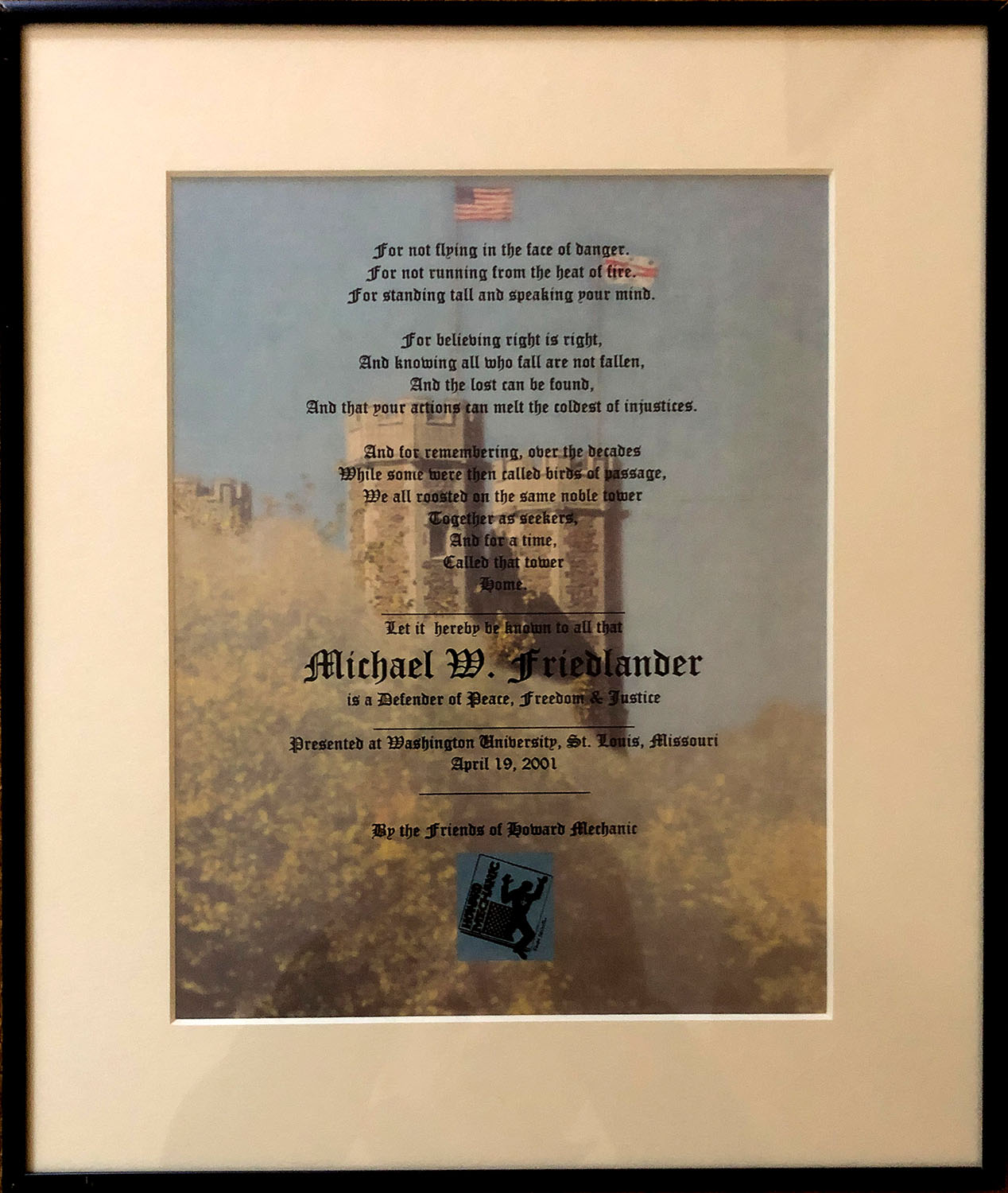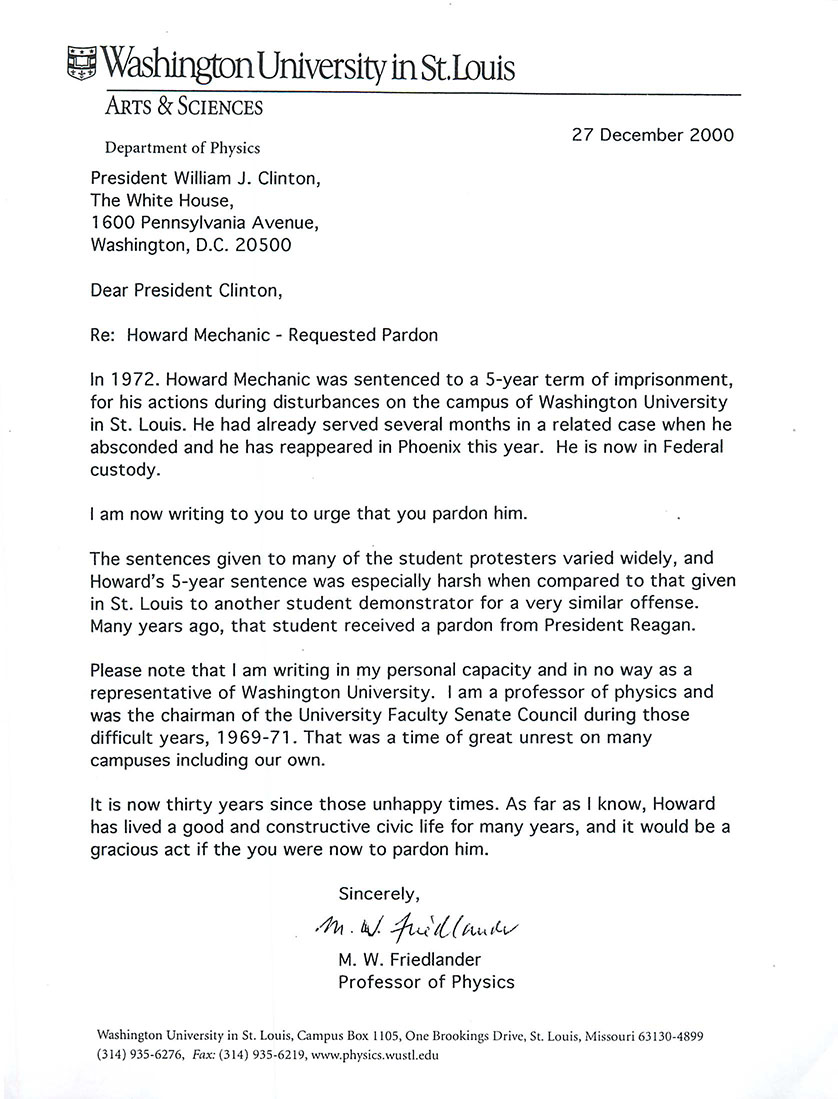2000-2001: Howard Mechanic presidential pardon

Citation for Michael for assisting in getting
a presidentical pardon for Howard Mechanic
April 19, 2001
As described here, Michael was Chairman of the Washington U. Faculty Senate during the Vietnam War. He described to me years later walking the campus late at night on multiple occasions in order to keep the peace and/or to prevent ransacking of university administration offices. (Since I was about six years old at the time, this was past my bedtime and I have no memory of this.)
The most major incident to occur was the May 1970 firebombing and burning of the quonset huts at the west end of the campus which held the ROTC (Reserve Office Training Corps) offices.
The most famous/notorious student arrested from this was one Howard Mechanic, who fled St. Louis in 1972 after his appeals failed, and lived as a fugitive for nearly 30 years. (He always asserted his innocence of the charges.) Worth noting too is that Mechanic was someone Michael already knew personally from the student meetings and protests.
There is a tremendous amount of documentation out there about this case. Some samples:
- United States vs Howard Mechanic (appeals court decision)
- Howard Mechanic: Supporters of Commutation Request [Folder 1] from the Clinton Presidential Library (FOIA request). This has much of the original content of the clemency request, including copies of many of the letters. However Michael's letter does not appear here (Folder 1 or Folder 2), for some reason.
- Activist to Fugitive, the Story of Howard Mechanic, St. Louis Jewish Light, Jan 23, 2023.
-
The Improbable Journey of Howard Mechanic, Washington University Political Review, June 14, 2016.
(Please note this link is awful in terms of readability (it's light grey on white!).
But if you do Select All (command-A on a Mac or control-A on Windows/Linux), then it is readable.) - Doesn't Anybody Know How To Be A Fugitive Anymore? New York Times, April 30, 2000.
- Perhaps most prominent is the eight-part podcast called "My Fugitive" by Nina Gilden Seavey.

Michael's letter to President Clinton
December 27, 2000
Eventually Mechanic was discovered living in Arizona in the fall of 2000 and returned to prison.
A group called "The Friends of Howard Mechanic" sought to get him a presidential pardon from President Bill Clinton, who was due to leave office in January 2001. A widespread effort was made to get letters recommending clemency from people who could in some way speak to the issue.
Apparently, this group tracked down Michael and made such a request of him, or he otherwise learned of the campaign. Michael did indeed write such a letter requesting pardon, dated December 27, 2000. And indeed in the very waning days of the administration, this pardon was granted by President Clinton.
About four months later (April 19, 2001), Michael was presented with the framed citation shown above at right, where he was lauded as "a Defender of Peace, Freedom, & Justice."
Interesting postscript: In 2005 Michael wrote a letter to the editor of Student Life (WU's student newspaper) positively recognizing Howard Mechanic and his cohorts' invested involvement in issues of the day 35 years before.